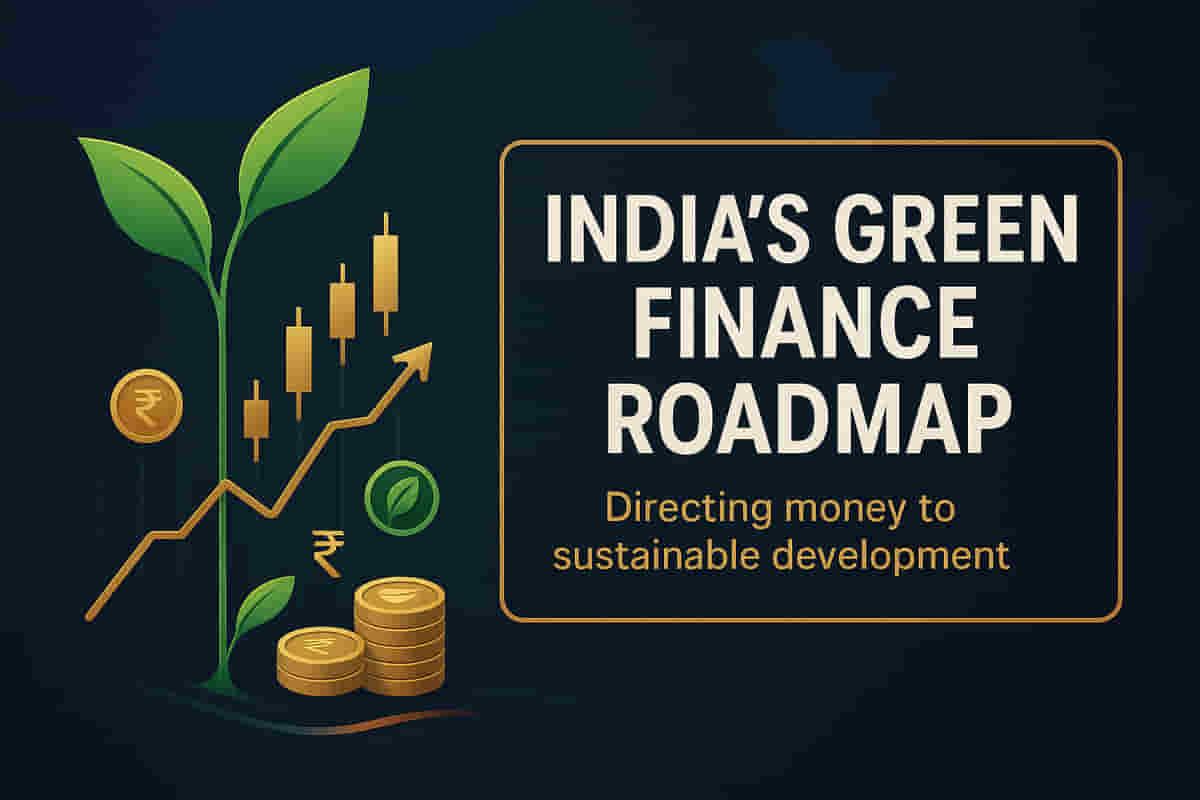Report Urges India to Make Climate Finance Taxonomy Practical and Inclusive
Economy
|
Updated on 30 Oct 2025, 07:11 am
Reviewed By
Aditi Singh | Whalesbook News Team
Short Description :

▶
Detailed Coverage :
The Centre for Social and Economic Progress (CSEP) has released a report urging the Indian government to make its proposed Climate Finance Taxonomy Framework a "practical, inclusive, and dynamic policy tool" ahead of COP30, rather than a rigid compliance exercise. Authors Renu Kohli and Kritima Bhapta suggest that India's draft taxonomy could unlock significant climate-aligned investments if it avoids common global shortcomings such as excessive technical complexity, inconsistent data standards, weak interoperability, insufficient focus on adaptation, and the risk of 'transition-washing' – where activities are mislabeled as green.
Renu Kohli stated that taxonomies should guide, not constrain, and India needs a balance between global credibility and domestic relevance, ensuring the framework doesn't exclude sectors it aims to mobilize.
Impact: This news directly impacts the Indian stock market and businesses by influencing how sustainable investments are classified and channeled. A well-designed taxonomy can attract substantial foreign and domestic capital towards green projects, benefiting companies in renewable energy, sustainable infrastructure, and climate adaptation sectors. Conversely, a poorly designed framework could deter investment or lead to misallocation of capital. The inclusion of MSMEs and adaptation finance could open new avenues for smaller businesses and projects crucial for climate resilience. Rating: 8/10
Difficult Terms Explained: Climate Finance Taxonomy: A classification system that categorizes economic activities based on their environmental sustainability, helping investors identify and direct funds towards green projects. Transition-washing: The practice of making misleading claims about the environmental benefits of an investment or activity to appear more sustainable than it is. MSMEs: Micro, Small, and Medium Enterprises. These are small to medium-sized businesses that form a significant part of India's economy. Mitiɡation: Actions taken to reduce the severity of climate change, primarily by reducing greenhouse gas emissions (e.g., renewable energy, electric vehicles). Adaptation: Actions taken to adjust to the current and future effects of climate change (e.g., building sea walls, developing drought-resistant crops).
More from Economy
Latest News

Auto
Suzuki and Honda aren’t sure India is ready for small EVs. Here’s why.

Brokerage Reports
Stocks to buy: Raja Venkatraman's top picks for 4 November

Mutual Funds
Quantum Mutual Fund stages a comeback with a new CEO and revamped strategies; eyes sustainable growth

Tech
Why Pine Labs’ head believes Ebitda is a better measure of the company’s value

Banking/Finance
SEBI is forcing a nifty bank shake-up: Are PNB and BoB the new ‘must-owns’?

Industrial Goods/Services
India’s Warren Buffett just made 2 rare moves: What he’s buying (and selling)
Renewables Sector

Renewables
Brookfield lines up $12 bn for green energy in Andhra as it eyes $100 bn India expansion by 2030
Energy Sector

Energy
India's green power pipeline had become clogged. A mega clean-up is on cards.
Renewables Sector

Brookfield lines up $12 bn for green energy in Andhra as it eyes $100 bn India expansion by 2030
Energy Sector
